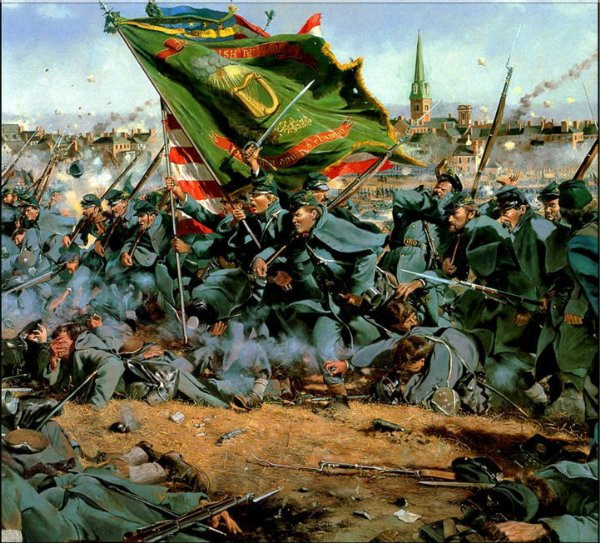In segment 26 D flirting with imperialism
26段第四部分,與帝國主義糾纏
The United States messes around with the world wide imperialistic process.
美國和全球的帝國主義進(jìn)程糾結(jié)在一起
In addition to the usual economic and social reasons for requiring an empire,
除了通常的經(jīng)濟和社會原因之外
America was fighting for its manifest destiny in the Pacific and the Caribbean.
美國還在太平洋和加勒比海地區(qū)為其命定擴張論而戰(zhàn)
As the ancient Romans had done centuries earlier
就像數(shù)世紀(jì)前古羅馬人所做的那樣
America believed it was sharing a superior form of government and way of life with supposedly backwards people of places like Hawaii, Cuba and the Philippines.
美國相信自己是在與夏威夷,古巴,菲律賓地區(qū)那些想必很落后的人民分享自己優(yōu)越的政府形式和生活方式

These supposedly backward people however often fought back very hard against their would be civilisers
而這些想必很落后的人們卻常常極力反抗這些文明人
the bloody fight for the Philippines in itself did a lot to lead public back to the idea of isolationism.
菲律賓的血戰(zhàn)導(dǎo)致公眾又產(chǎn)生了孤立主義的想法
Segment 26 B an American near tragedy
26段第二部分,美國險釀悲劇
To this day the nation doesn't really agree on why the American Civil War took place.
至今美國各方面還沒有真正就內(nèi)戰(zhàn)為何爆發(fā)達(dá)成一致意見
Growing up in Wisconsin I was taught that we Northerners fought to rid the South of slavery,
我在威斯康辛州長大,從小就被教導(dǎo)說我們北方人打仗是為了廢除南方奴隸制
my wife's teachers in Lawrenceburg Tennessee which provided both union and confederate soldiers presented it more as the Southern states defending their individual states rights.
我妻子在田納西州勞倫斯堡,那里為合眾國和聯(lián)盟國都提供了戰(zhàn)士,那里的老師講的卻是南方為了捍衛(wèi)自己本州的權(quán)利而戰(zhàn)











